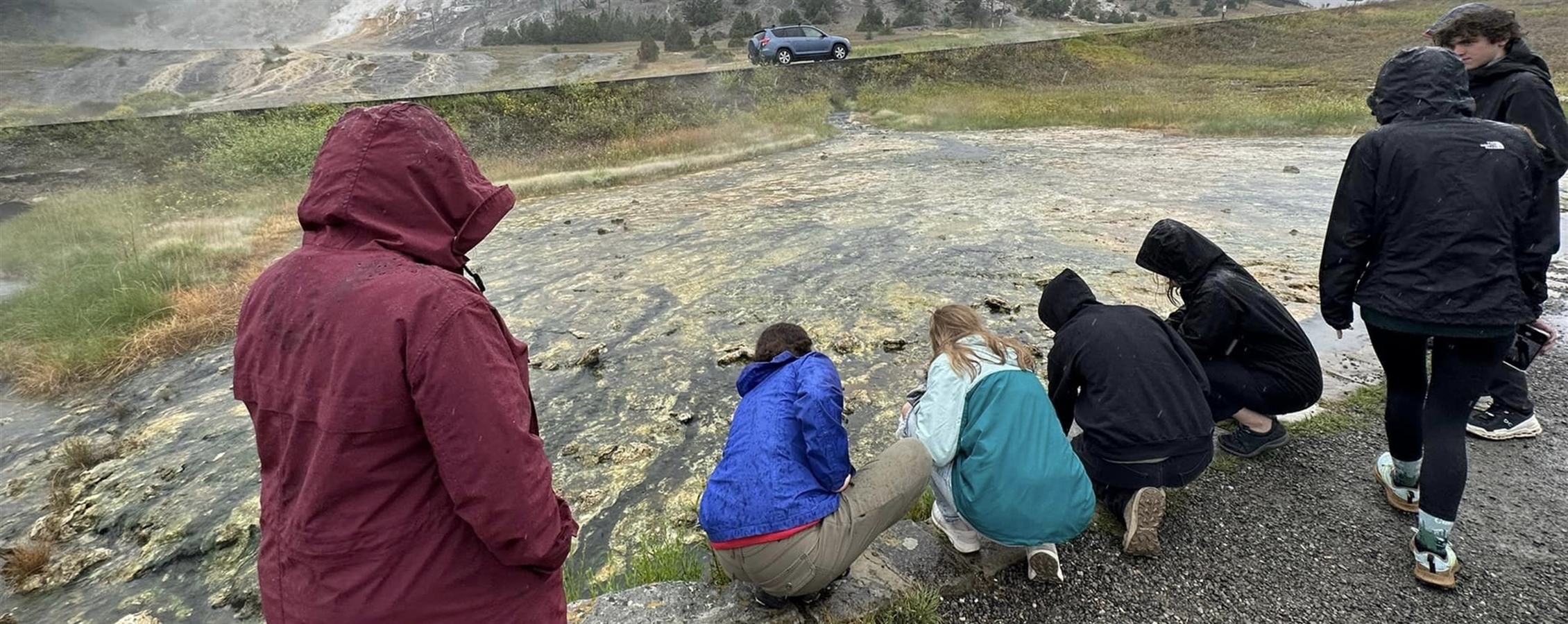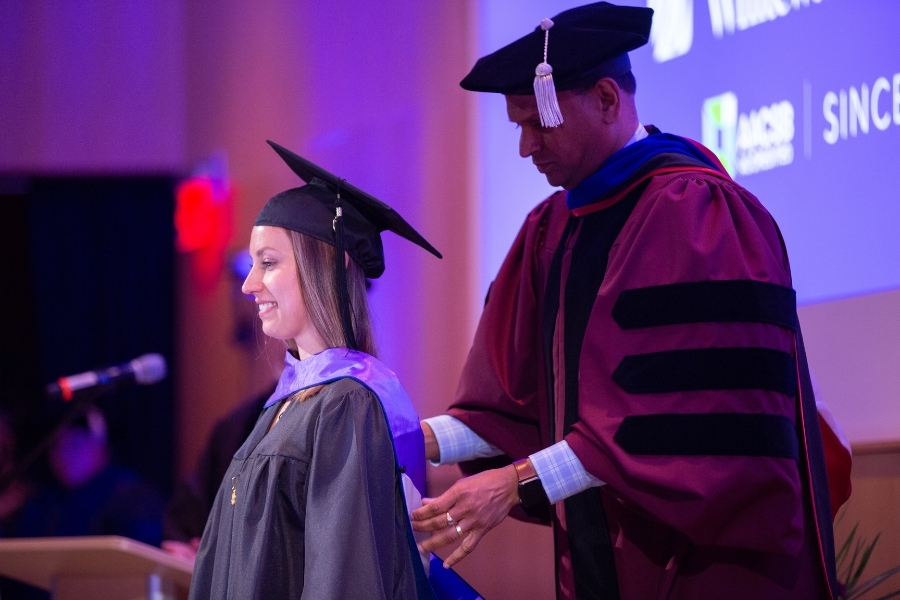Environmental Science in National Parks
Travel Dates: Sunday, July 26 - Sunday, August 16, 2026
This is a multi-disciplinary, summer field course focusing on environmental change and natural history. It is held at Yellowstone, Grand Teton, and other parks and sites en route. Students will learn field methods, geology, environmental change, and natural history. It is suitable for biology, environmental science, geography/geology majors and anyone interested in field science or natural history.
The course consists of online course work and two weeks of travel. This course is offered at the lower and upper undergraduate levels, with travel occurring concurrently.
ENVISCI 250 (Introduction to Environmental Science in National Parks): This 4-credit course satisfies the Conservation requirement for applicable education majors.
ENVISCI 451 (Advanced Environmental Science in National Parks): This 3-credit course fulfills the experiential learning requirement for Environmental Science majors.
Cost Information
Cost: $4,500 (estimate). Financial Aid may apply. Cost includes transportation, lodging, admission fees, some meals, and tuition for undergraduate credits. Credit registration information and fee schedules/deadlines published in the University timetables do not apply to this program.
Where will I go?
We will travel from Whitewater to Grand Teton and Yellowstone National Parks and then back to Whitewater. Along this route and in the parks we will be conducting field work to investigate the environmental changes and impacts occurring throughout these portions of the United States. We will also learning about the geology of these areas and about native cultures in these regions.
What will I study?
This is an introductory course suitable for all students with an interest in environmental change and the sites visited. The course will provide an introduction to the natural history shaping the areas visited as well as conversations about the culture history at certain points. During the course students will also explore philosophies of conservation and critically examine differing views related to global climate change, resource use and conservation, and preservation vs. access. The course also provides an introduction to field work related to proper field notebook record keeping, data recording of various types of instruments, use of GPS and maps, specimen collection procedures, and species identification.
Who can come?
This course is open to all university students, or anyone else who has serious interest in these topics. Teachers who have participated in the past have returned to their classrooms with a wealth of materials including slides, photos, minerals and fossils. Students with disabilities may be accommodated.
Contact Us
Request permission to enroll in this course by filling out the form or contact Kari Borne at bornek@uww.edu or 262-472-1003.


